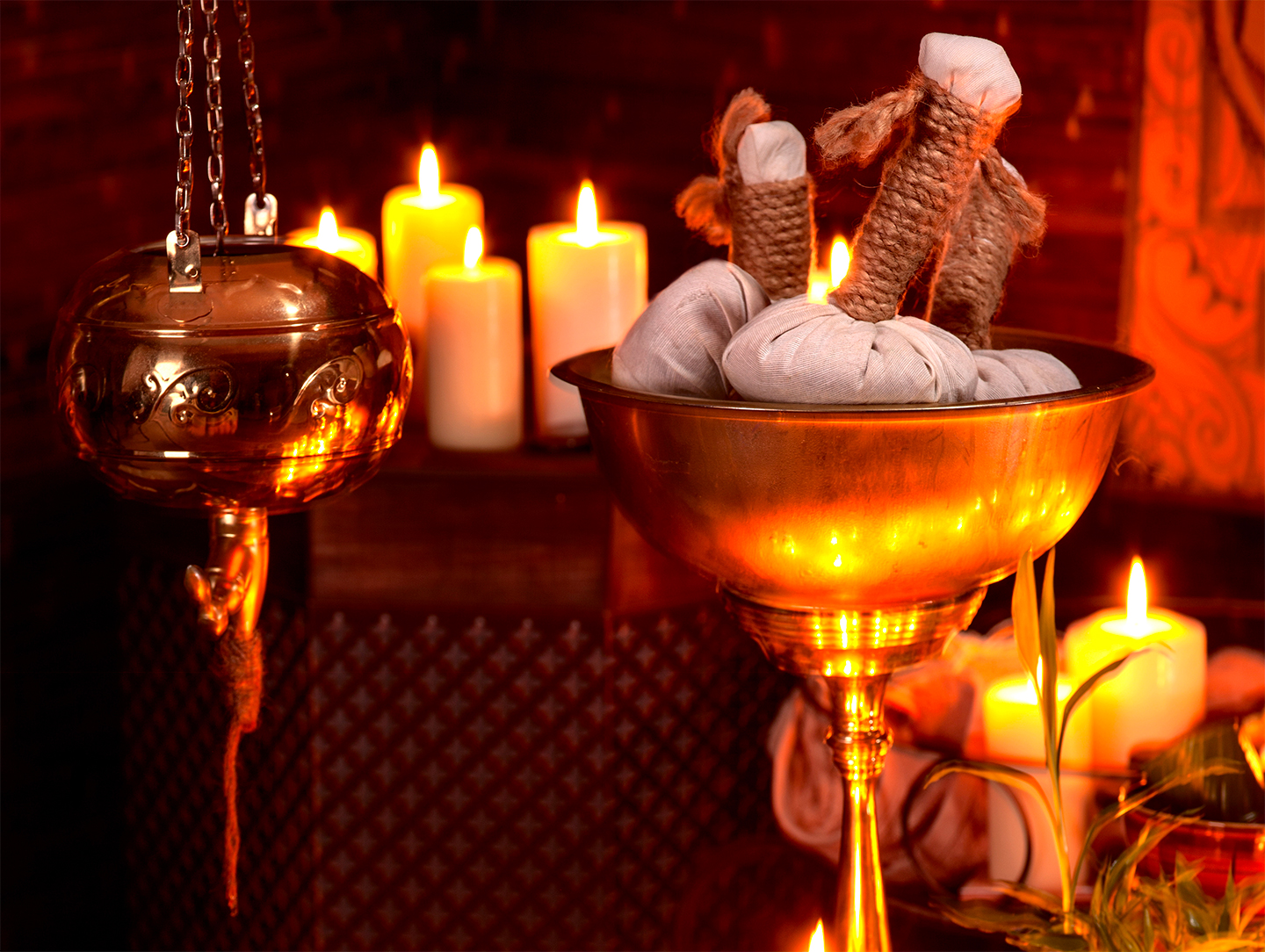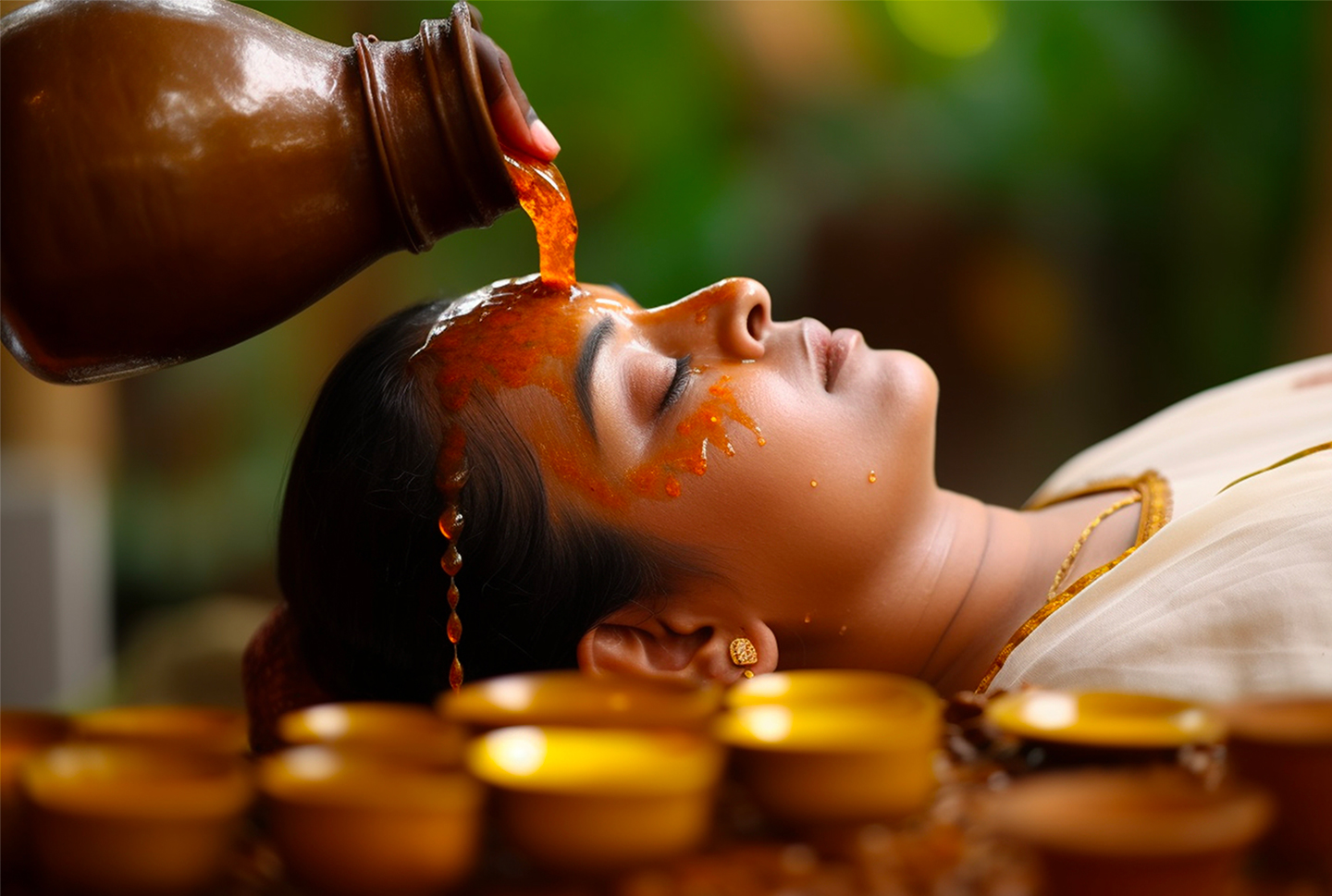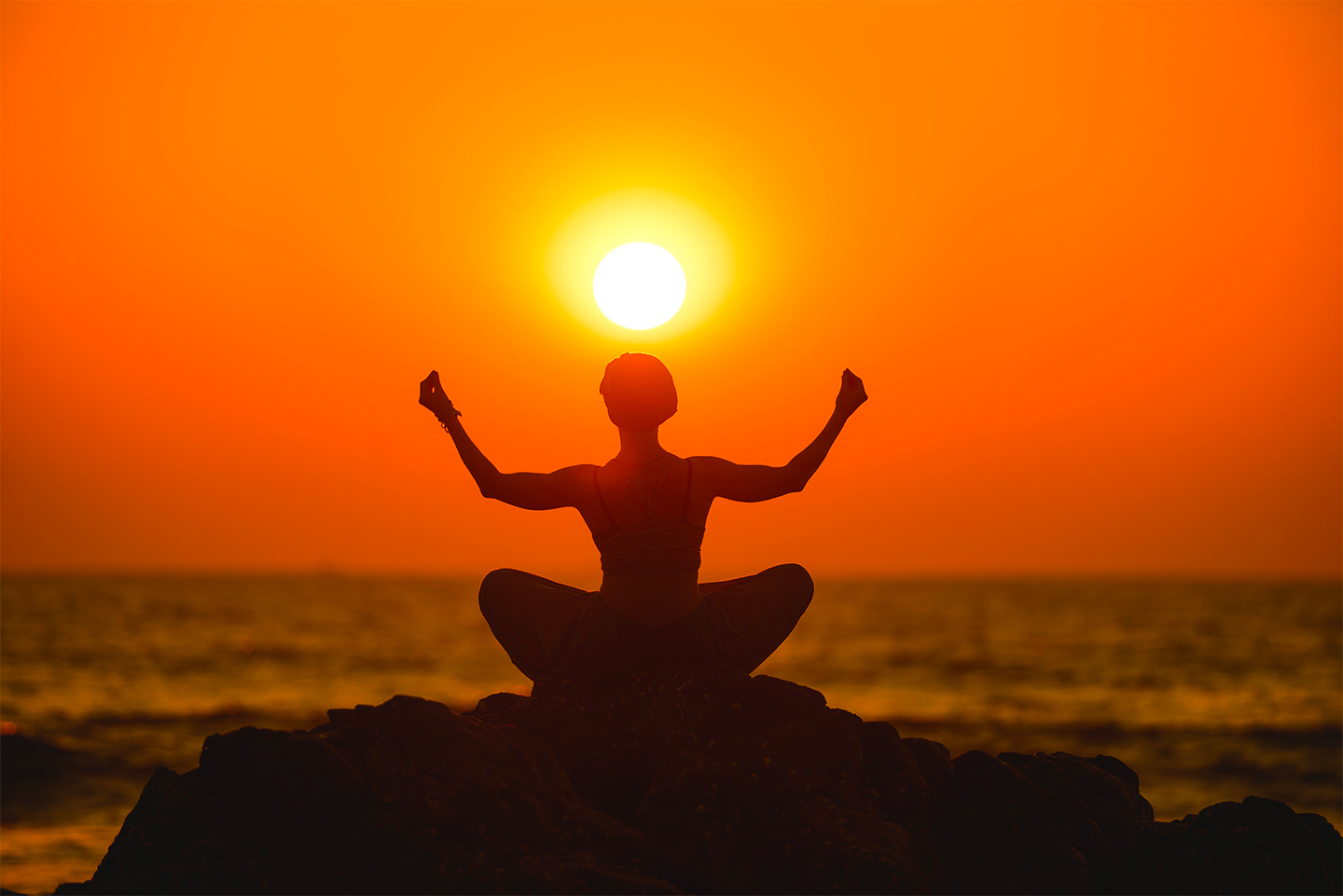


From India to the rest of the world, a healthy lifestyle is now ready to be adopted globally. This is what Ayurveda plans to do, riding the wave of the country’s recent cosmetic success.

India is becoming a new beauty hotspot as traditional Indian ingredients and rituals are conquering beauty consumers around the world Not surprisingly, in their latest “The beauty market in 2023: A special State of Fashion report,” McKinsey reported that “The next few years will be a dynamic time for the beauty industry, filled with opportunities and new challenges. [...] The Middle East is expected to fuel growth, with India expected to emerge as a new hot spot in the longer term.”
What is Ayurveda, and how does it work?
Originating in India a few thousand years ago, Ayurveda is a very ancient medical philosophy that relies on a natural and holistic approach to physical and mental health.

A person can regain balance with the help of Ayurvedic treatments “Ayurvedic beauty practices have been an integral part of Indian culture for centuries, blending holistic wellness with natural ingredients,” explained Indian stylist and graphic designer Mallika Kohli, who studied at Istituto Marangoni Milano. “Ayurveda, a traditional system of medicine, emphasises the balance between mind, body and spirit to achieve optimal health and beauty. In India, Ayurvedic beauty rituals are deeply rooted in the belief that inner well-being reflects outer radiance”.
Why is Ayurveda making an impact in today’s global beauty industry?
A new generation of Indian homegrown brands budded in recent years, with an emphasis on Ayurvedic practices. Now that the pandemic has reshaped values and priorities for consumers, who have shifted their objectives from aesthetic perfection to holistic well-being, this could be the perfect moment for these labels to spread internationally.

Consumers are now embracing an increasingly holistic approach This practice is becoming a growing influence in beauty worldwide as consumers increasingly view wellness through a broader and more sophisticated lens.
“Ayurvedic practices often involve the use of herbs, oils, and other natural ingredients that are believed to nourish and rejuvenate the skin,” explained Kholi. “Ayurvedic beauty treatments focus on cleansing, exfoliating and moisturising the skin using ingredients like turmeric, sandalwood, aloe vera, and rosewater. These natural remedies not only enhance the skin’s health but also address specific skin concerns like acne, pigmentation and ageing.”
When did Indian brands rooted in Ayurvedic practices start thriving? The journey of Kama Ayurveda, Forest Essentials, Patanjali and others
While, in the past years, Indian beauty brands struggled to convince local clients that they were a worthy, niche alternative to global labels, now that the country has become a new beauty hotspot, these brands rooted in ayurvedic practices such as Kama Ayurveda, Forest Essentials or Patanjali are now thriving. And they aim to make Indian traditions approachable worldwide, too, challenging global leaders like L’Oréal and Estée Lauder or luxury houses like Dior or Chanel.
Visualizza questo post su Instagram
Considered one of the most popular Indian brands, Forest Essentials has gained a significant presence in the Indian beauty market. The brand has established a solid domestic and international customer base by focusing on luxury Ayurvedic products. “Forest Essentials has a wide retail presence with standalone stores, luxury boutiques, and online platforms,” continued Istituto Marangoni Milano alumna Mallika Kohli. “The brand has several standalone stores and counters in international locations, primarily in upscale shopping districts, luxury department stores, and airports. They have a significant presence in countries like the United States, United Kingdom, Singapore, Malaysia, Thailand and the United Arab Emirates.” Forest Essentials’ international stores often offer a wide range of Ayurvedic beauty and wellness products, including skincare, haircare and body care items.
Visualizza questo post su Instagram
The Kama Ayurveda brand has also experienced remarkable growth in the Indian beauty market. “The brand’s commitment to purity and efficacy has garnered a loyal following. Kama Ayurveda products are available through their exclusive stores, select luxury retail outlets and their online store,” said the expert. “Kama Ayurveda has expanded its reach globally and has international stores in various countries. They have stores in the United States, the United Kingdom, Singapore, Malaysia, Thailand, and the Middle East. Kama Ayurveda’s international stores showcase their range of Ayurvedic skincare, haircare and body care products, allowing customers to experience the brand’s offerings firsthand.”
Visualizza questo post su Instagram
Biotique also has a substantial market presence in India. The brand’s affordable pricing and diverse product range make it accessible to a wide range of consumers. Biotique products are available through various distribution channels, including exclusive stores, leading supermarkets, pharmacies and e-commerce platforms.
Himalaya Herbals has a strong foothold in the Indian beauty and wellness market, too. Known for its quality and affordability, the brand has gained widespread popularity, and its products are widely available across retail outlets, pharmacies, supermarkets and online platforms.
Patanjali, an Ayurvedic brand founded by Baba Ramdev and Acharya Balkrishna, provides a fascinating case history. “Baba Ramdev, born as Ramkishan Yadav in 1965, is a prominent yoga guru and spiritual leader in India. He gained immense popularity for his yoga teachings and for promoting Ayurvedic products through Patanjali,” told Mallika Kholi. “Under Baba Ramdev’s leadership, Patanjali has become one of the fastest-growing FMCG (Fast-Moving Consumer Goods) companies in India. The brand offers a diverse range of Ayurvedic products, including personal care items, food and beverages, health supplements and more». Patanjali emphasises natural ingredients, herbal extracts and traditional Ayurvedic formulations in their products.
Patanjali’s success story has been marked by its disruptive presence in the Indian FMCG market. “The brand has challenged established players and gained a substantial market share, primarily due to Baba Ramdev’s mass appeal, the trust associated with Ayurveda, and the affordability of Patanjali products,” said Mallika Kholi. “It’s worth noting that while Patanjali has enjoyed immense success, the brand has also faced controversies and scrutiny regarding its marketing claims and product quality. However, it remains a significant player in the Ayurvedic and wellness sector in India.”
Last but not least, a brand growing organically is also Pahadi. “Pahadi in Hindi means ‘from the hills’. It has taken inspiration from the Himalayas, incorporating traditional Himalayan beauty rituals and ingredients into their products,” she explained. “The brand aims to showcase the natural beauty and wellness traditions of the region and actively participates in social initiatives to give back to the local Himalayan communities.” The company works on projects related to education, healthcare and environmental conservation.
Finally, Vicco Laboratories was established by Mr. Keshav V Pendharkar in 1952. “Vicco Laboratories, which has praised the Indian Ayurveda and its nurturing, protecting and rejuvenating medicinal products and remedies from a fierce abyss of disdain and contempt to the peak of worldwide recognition, esteem and honour, has completed its tough and tedious march of sixty years and has celebrated The Diamond Jubilee,” Kholi concluded. VICCO Group has emerged today as makers of the best internationally known Ayurveda products.
From Estée Lauder and Puig to L’Oréal, why are global beauty giants setting their sights on Indian brands?
While the global beauty industry is worth nearly 500 billion dollars and is led by huge conglomerates, the Indian cosmetics market reached 15.6 billion dollars last year, according to Euromonitor, and is projected to touch 17.4 billion dollars by 2025. Therefore, the road is uphill, but there is room to grow even faster with consistent investments.
Beauty giants such as L’Oréal, The Estée Lauder Companies, and the Spanish group Puig have already shown interest in the local Indian market and its brands.
Visualizza questo post su Instagram
The American Estée Lauder acquired a 20% stake in the premium skincare brand Forest Essentials in 2008, while in July last year, its new incubation ventures arm partnered with beauty and lifestyle retailer Nykaa to support India-focused companies and entrepreneurs.
The French group L’Oréal made its first acquisition in India in 2013, buying the Mumbai-based skincare brand Cheryl’s Cosmeceuticals. More recently, it has invested in Indian beauty start-ups like DSG Consumer Partners, a venture capital firm specialising in consumer brands across India and Southeast Asia. In September last year, Puig bought a majority stake in Kama Ayurveda.
But Indian beauty brands didn’t only get the attention of sector leaders. A year ago, L Catterton, the private equity firm of luxury giants LVMH, led a series of D funding rounds through its Asia fund for Sugar Cosmetics, one of the country’s largest omnichannel beauty companies targeting Gen Z and Millennials. Stay tuned to read about future developments!
Clementina Bianchi
Editor



